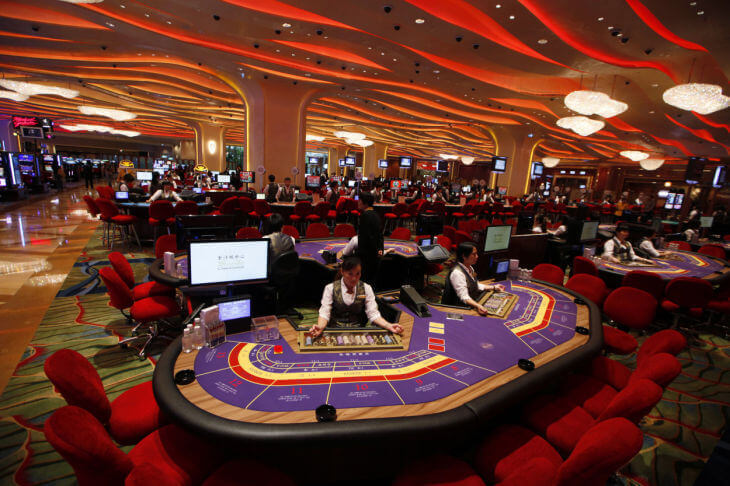There are nearly 4.463 billion people living in Asia in 2020, which accounts for more than half of the world’s population. With so many people calling it home, this continent seems like fertile ground for literally every type of business, including casino gaming. However, in reality, casinos in Asia are not so common, with a majority of Asian countries keeping gambling illegal. In fact, each of the five most populous countries in Asia has some laws that restrict casino gambling.
Still, the revenue made by Asian casinos is much higher than what casinos make in the western world. How can this be possible, you might wonder? The answer lies in the fact that there are some gambling hubs around the continent that bring billions of dollars’ worth of profit to the casino industry. The best example of this is Macau, with a gambling revenue that’s almost four times the revenue generated by Las Vegas casinos.
Macau – The Gambling Capital of Asia
Although all forms of gambling remain illegal in Mainland China, there’s one place where Chinese casino fans can go to gamble. It’s Macau, a resort city situated in Southeastern China. Although technically a part of China, Macau is actually a special administrative region with its own laws and regulations. One of the laws that makes it different from the rest of China is the one about the legality of gambling. In Macau, not only is gambling legal, but gambling is the no.1 source of income,
The gambling revenue of the region was nearly $40 billion last year, the highest figure in the world. In comparison, the gambling revenue made by Las Vegas casinos is somewhere in the ballpark of $8 billion. An interesting fact is that a big majority of casino patrons in Macau are people from mainland China. About 68% of all the visitors in 2019 were China residents. In 2020, the situation is even more extreme due to the COVID-19 pandemic, which made the Macau government shut its borders to foreigners.
Singapore Casinos Come In #2
When it comes to gambling revenue figures in Asia, Singapore is in second place with an estimated $7 billion a year. The state runs its own lottery as well as provides platforms for online lottery and sports betting. Still, most of Singapore’s gambling revenue comes from the only two commercial casinos in the country – Marina Bay Sands and Resorts World Sentosa.
A fun fact about these two establishments is that both of them belong to the top 10 list of the most expensive buildings in the world. Marina Bay Sands is in #6, with the total construction cost estimated to be over $6.33 billion. Resorts World Sentosa is the world’s eight most expensive building, whose construction cost $5.68 billion. Another fun fact about these two casinos is that they both opened in 2010.
Gambling “Not a Sin” in the Philippines
As one Philippine official put it, “gambling is not a sin,” asserting that even priests and nuns do it in the Philippines. And they’ve been doing it since as early as the 1500s, which makes the Philippines a traditionally gambling-friendly place. Practically all forms of gambling are legal in this country, from casino gaming to cock-fighting betting.
Even online casino games are not banned in this country. The same is not the case with a majority of other Asian countries, including the ones we’ve previously discussed.
Hectic Situation in India’s Gambling Laws
There are 29 states in India, together with seven union territories. Each of these has the right to pass the gambling laws on its own. The result is that some parts of India are friendly toward gambling, while some states will put you in jail if you try to gamble. In some parts of the country, illicit gambling can result in a prison sentence of up to three months.
At the moment of writing, there are three areas in India where it’s possible to gamble in land-based casinos. Those are, namely, the state of Sikkim in northeast India, Goa on the southwestern coast of India, and the union territory of Daman.
Other Gambling-Friendly Parts of Asia
In other parts of Asia, gambling is either completely illegal or heavily regulated. The states that belong to the latter category, usually keep gambling activities confined to a specific area far away from large population centers. Furthermore, some countries like South Korea, for example, allow land-based casinos to operate but only if they can ensure no Korean nationals are allowed to gamble.
Some other countries like Vietnam, for instance, only allow those gambling activities that are controlled by the state, e.g., state lottery. Over in Japan, in addition to prefecture/city-organized lottery games, it’s also legal to play a slot-like game of pachinko, which is not seen as a gambling activity in the eyes of the law.
In the Middle East, gambling is banned in all predominately Muslim countries, the reason being that gambling is prohibited in Islam. Those include the UAE (United Arab Emirates), Saudi Arabia, Kuwait, and others. The only notable exception is Turkey, where casinos and online gambling remain illegal, but some forms of state-run lottery games are legal.








